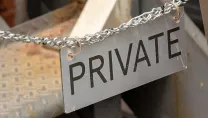It's common to have numerous online accounts, from email and social media, to banking and shopping. With so many passwords to remember, it is tempting to use the same one for multiple accounts. After all, it makes life easier, right? But while it might seem convenient, reusing passwords can put you at significant risk.
Why Reusing Passwords is Risky
Imagine this, you use the same password for your email, social media, and online banking. One day, a website you use gets hacked, and your password is stolen. If you have reused that password, the hacker now has access to all your other accounts. It is like giving them a master key to your digital life.
For example, if they access your email, they can reset passwords for other accounts linked to that email address. This can lead to a cascade of compromised accounts, making it difficult to regain control.
Here are some key reasons why reusing passwords is a bad idea:
- Data Breaches are Common: Unfortunately, data breaches happen more often than we would like to think. When a breach occurs, hackers can obtain usernames and passwords, which they then use to try and access other accounts. If you have reused your password, you are making their job easier.
- Credential Stuffing: This is a technique where hackers use stolen usernames and passwords to gain access to other accounts. They rely on the fact that many people reuse passwords. If your password is compromised in one breach, it can be used to break into other accounts.
- Personal Information at Risk: Many of our online accounts contain sensitive information such as personal details and financial data. If a hacker gains access to one account, they can potentially access a wealth of information about you.
How to Protect Yourself
The good news is that protecting yourself does not have to be complicated. Here are some simple steps you can take to safeguard your online accounts:
- Use Unique Passwords: The most important step is to use a different password for each account. This way, if one password is compromised, your other accounts remain secure.
- Create Strong Passwords: A strong password is one that is difficult for others to guess. It should be at least 12 characters long and include a mix of letters, numbers, and special characters. Avoid using easily guessable information like your name or birth date.
- Develop a Password Methodology: For example, use a combination of 2 or 3 special characters at the start, followed by the name of your favourite band, then something that the application or website reminds you of that’s not easily guessable (this is the only part that will need to change between passwords), add in a number, and finish off with 2 or 3 more special characters. If you want to be more secure, separate with hyphens. This means the password ends up long and will be very hard to guess, even for a computer trying to brute force your account, but easy to remember.
- Password Manager: Forget option three and use a secure password manager to create and save passwords. By using a password manager, you only need to remember one password. This password manager can be added as an extension to your web browser, making it easy to access all your other passwords.
- Enable Two-Factor Authentication (2FA): Two-factor authentication adds an extra layer of security by requiring a second form of verification in addition to your password. This could be a code sent to your phone or an authentication app. Even if a hacker has your password, they will not be able to access your account without the second factor.
While it might be tempting to reuse passwords for the sake of convenience, the risks far outweigh the benefits. By taking a few simple steps to create and manage strong, unique passwords, you can significantly reduce your risk of falling victim to cyber attacks. Remember, protecting your online accounts does not have to be a daunting task. With the right tools and habits, you can keep your digital life secure and enjoy peace of mind.
So, take a moment today to review your passwords and make the necessary changes. Your future self will thank you!





